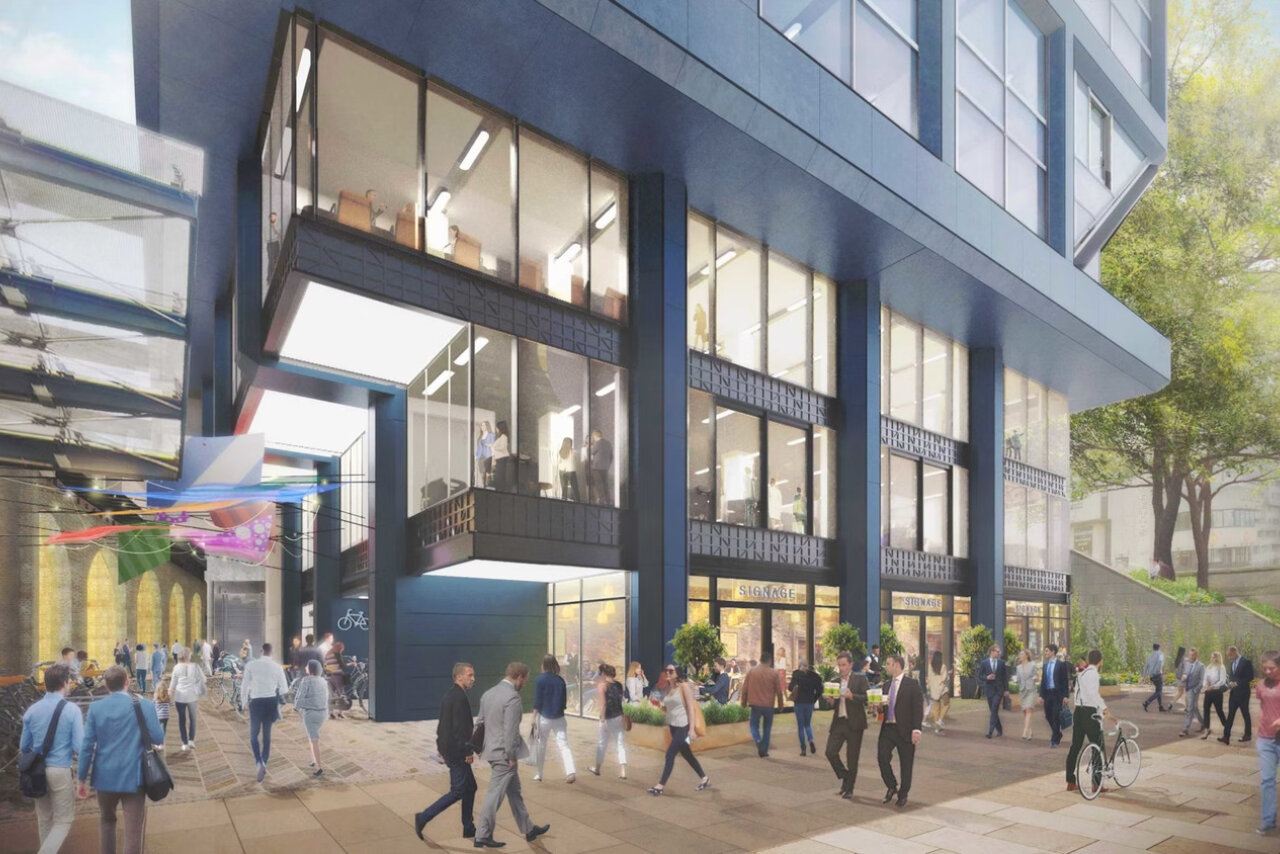| Title: | Bankside Yards, Southwark |
| Markets: | Residential, Public Realm, Cultural, Mixed-use |
| Client: | Native Land |
| Services: | Landscape architecture |
| Region: | United Kingdom |
| Date: | 2022 |
| Team: | PLP Architecture |
| Photography: | CGI copyright Make Architects |
Bankside Yards is a new pioneering riverside cultural quarter located on a stretch of underutilised riverfront on London’s South Bank. The development for client Native Land will open up this previously inaccessible part of central London through a high-quality public realm, establishing active and green connections between Bankside and the South Bank for the first time in more than 100 years.
Bankside Yards is a residential-led mixed-use scheme, occupying the site of the former Sampson and Ludgate House in Southwark, close to Blackfriars Station. The masterplan, designed by architect PLP, will position Bankside Yards as a new gateway to Southwark and a vibrant cultural destination for London.
The mixed-use scheme consists of nine new buildings incorporating a rich mix of housing, offices, cultural and retail spaces, connected together by a framework of high-quality green spaces, squares and new connections. At the centre of the development is the restoration of the historic rail viaduct which includes a distinct row of arches that are set to be repurposed as cultural and retail amenities.
Gillespies supported the development of the masterplan and positioning of the buildings through the delivery of a public realm and landscape framework that establishes a network of varied public urban spaces.
The public realm establishes improved east-west and north-south routes, including new routes that will connect Bankside to the Southbank, a highly programmed square, green spaces, a series of yards and a new connection to The Low Line. A series of planted private and communal gardens are weaved through the upper levels of each building, enhancing the biodiversity of the areas and providing a relaxing escape from the city below.
The design approach seeks to establish 'identity' and 'variety' within the masterplan spaces, taking references from 1000 years of Bankside history, its industrial uses, historic manufacturing, milling and wharf activities that once made this part of London what it is today.





